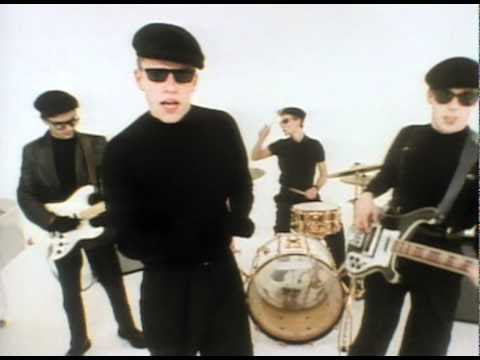We've Got You Covered!
Covers are a useful weapon in an artist's arsenal; taking a well-known, well-loved classic and putting a refreshing new twist on it can be a great way to break through and get noticed. A rarer phenomenon occurs when an artist takes a lesser-known track from an established name, adapts the song, and releases it to greater acclaim than the original: so much so, that audiences sometimes assume that the song isn’t a cover at all. So, without further ado, here are five of our favourite covers that you never knew were covers in the first place!
1. UB40: RED, RED WINE (ORIGINALLY BY NEIL DIAMOND)
Coming off the back of three consecutive Top 5 UK records, as well as achieving hits in countries around the world, UB40 released their version of Red, Red Wine in 1983 to much acclaim. Whilst other hits helped the band to get a foothold in the charts, it was this cover that gave the band their first Number 1. Included on the reggae covers album "Labour of Love", Red, Red Wine was originally penned by American songwriter, Neil Diamond. UB40, however, claim to have taken their inspiration for the well-known song from Jamaican singer Tony Tribe, who had released a cover later in 1969.
2. MADNESS: IT MUST BE LOVE (ORIGINALLY BY LABI SIFFRE)
Legends of ska, Madness, achieved much UK chart success in the 1980's. Their 1981 hit, It Must Be Love, peaked at number four, one of ten singles to reach the top five. Coupled with an off-the-wall video in which members of the band appear to play their instruments under water, Madness' much-loved romantic foot-tapper was originally written by Labi Siffre and appeared on his 1972 album, 'Crying, Laughing, Loving, Lying.' If you watch closely, Siffre makes a cameo in the Madness video, playing the violin.
3. BLONDIE: THE TIDE IS HIGH (ORIGINALLY BY THE PARAGONS)
It's no secret that The Tide Is High has been covered numerous times over the years - including British pop darlings, Atomic Kitten – but the actual origins of the song remain relatively unknown. Blondie’s 1980 version received international acclaim, giving the group No.1 hits in the UK, US, Canada and New Zealand. The original record came out thirteen years beforehand with rock-steady reggae vibes, courtesy of The Paragons.
4. THE BEATLES: TWIST AND SHOUT (ORIGINALLY BY THE TOP NOTES)
Often assumed to be a Lennon/McCartney offering, the rock 'n roll staple, Twist and Shout has been multiple times by everyone from female hip-hop group Salt-N-Peppa to reggae duo Chaka Demus and Pliers. The song features as the final track on The Beatles debut album, 1963’s Please Please Me. The story goes that after a brutally tiring day in the studio, and with a heavy cold no less, Lennon delivered a famously roaring vocal performance which rendered his voice all but gone! A lesser-known version was regularly performed by Brian Poole and the Tremeloes, the band Decca had, ironically, signed instead of The Beatles! The Isley Brothers recorded a cover more heavily influenced by the gospel genre in 1962, which came not long after the 1961 version by US vocal ensemble, The Top Notes. The original was actually penned Phil Medley and Bert Berns (later credited as Bert Russel).
5. TIFFANY: I THINK WE’RE ALONE NOW (ORIGINALLY BY TOMMY JAMES & THE SHONDELLS)
Utilised recently as part of McDonald's most recent ad campaign, teenage pop sensation Tiffany Darwish released this much-loved cover to massive chart success in 1987. The song currently has over 100 million streams on Spotify. Its origins can be traced back to 1967 when Ritchie Cordell and The Shondells collaborated to bring the track to fruition, where it enjoyed a decent amount of airtime and made it into the UK Top 5. Tiffany is said to have been less than impressed when played the song by her producer for the very first time. Not feeling the song to be 'hip enough', her friends gave the dance-pop version a positive enough to change the singer's mind.






Comments
Post a Comment